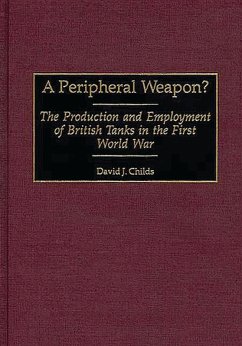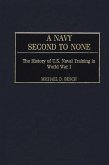The tank was arguably the most important technological innovation that developed during World War I; however, without the support of the British Army and the allocation of important wartime resources, it would have remained merely a peripheral weapon. For far too long, the depiction of the British War Office and GHQ, France, as anti-technological and cavalry-oriented has persisted. While some historians have recently challenged this view, much of the traditional versus progressive school of thought, in regard to the production and employment of the tank, still survives. By posing the question: was the tank a peripheral weapon? this work reveals the vital role of the War Office in the production and employment of this stunning new weapon.
The War Office was behind the creation of the original Tank Committee, the New or Advisory Tank Committee, the Tank Directorate and the Tank Board. It was these bodies, particularly the Tank Board, established in 1918, that facilitated the crucially important liaison between the users of tanks in France and the producers at the Ministry of Munitions. Without War Office involvement in this way, without its continued orders for more and better tanks, and without the consistently high priority status accorded to tank production by General Haig, it is inconceivable that the tank would have reached the level of technical sophistication, and therefore usefulness, that it had by late 1918.
The War Office was behind the creation of the original Tank Committee, the New or Advisory Tank Committee, the Tank Directorate and the Tank Board. It was these bodies, particularly the Tank Board, established in 1918, that facilitated the crucially important liaison between the users of tanks in France and the producers at the Ministry of Munitions. Without War Office involvement in this way, without its continued orders for more and better tanks, and without the consistently high priority status accorded to tank production by General Haig, it is inconceivable that the tank would have reached the level of technical sophistication, and therefore usefulness, that it had by late 1918.









